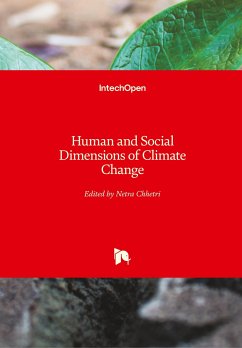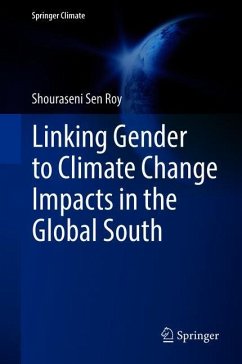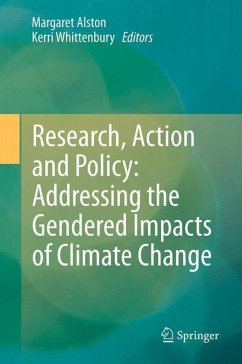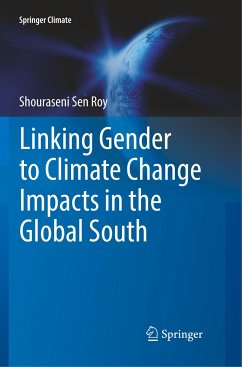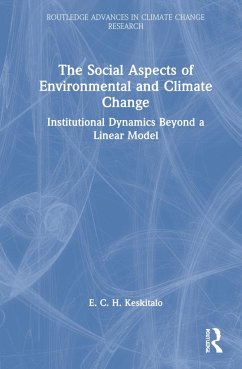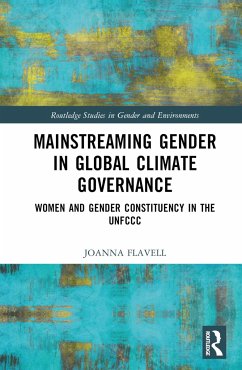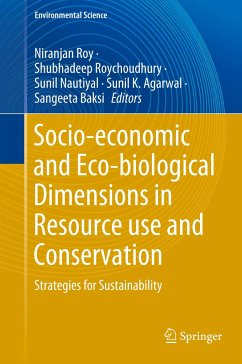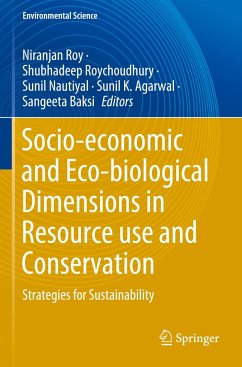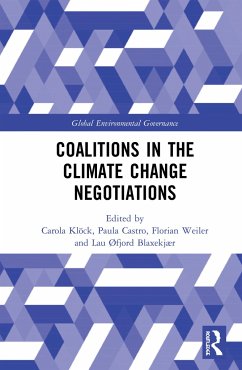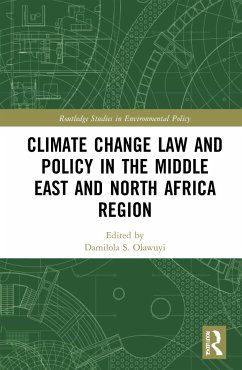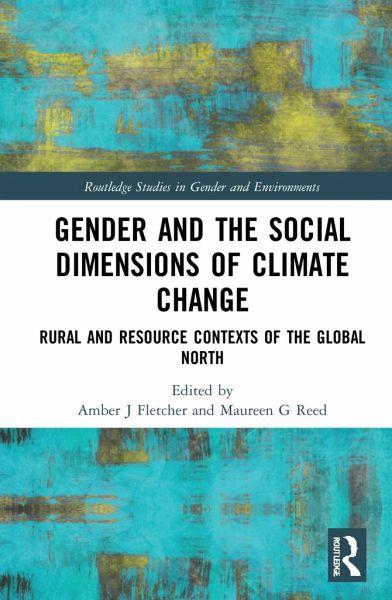
Gender and the Social Dimensions of Climate Change
Rural and Resource Contexts of the Global North
Herausgeber: Fletcher, Amber J.; Reed, Maureen G.
Versandkostenfrei!
Versandfertig in 1-2 Wochen
167,99 €
inkl. MwSt.

PAYBACK Punkte
84 °P sammeln!
Dispelling the myth that people in the Global North share similar experiences of climate change, this book reveals how intersecting social dimensions of climate change-people, processes, and institutions-give rise to different experiences of loss, adaptation, and resilience among those living in rural and resource contexts of the Global North. Bringing together leading feminist researchers and practitioners from three countries-Australia, Canada, and Spain-this collection documents gender relations in fossil fuel, mining, and extractive industries, in land-based livelihoods, in approaches for ...
Dispelling the myth that people in the Global North share similar experiences of climate change, this book reveals how intersecting social dimensions of climate change-people, processes, and institutions-give rise to different experiences of loss, adaptation, and resilience among those living in rural and resource contexts of the Global North. Bringing together leading feminist researchers and practitioners from three countries-Australia, Canada, and Spain-this collection documents gender relations in fossil fuel, mining, and extractive industries, in land-based livelihoods, in approaches for inclusive environmental policy, and in the lived experience of climate hazards. Uniquely, the book brings together the voices, expertise, and experiences of both academic researchers and women whose views have not been prioritized in formal policies-for example, women in agriculture, Indigenous women, immigrant women, and women in male-dominated professions. Their contributions are insightful and compelling, highlighting the significance of gaining diverse perspectives for a fuller understanding of climate change impacts, more equitable processes and strategies for climate change adaptation, and a more welcoming climate future. This book will be vital reading for students and scholars of gender studies, environmental studies, environmental sociology, geography, and sustainability science. It will provide important insights for planners, decision makers, and community advocates to strengthen their understanding of social dimensions of climate change and to develop more inclusive and equitable adaptation policies, plans, and practices.





